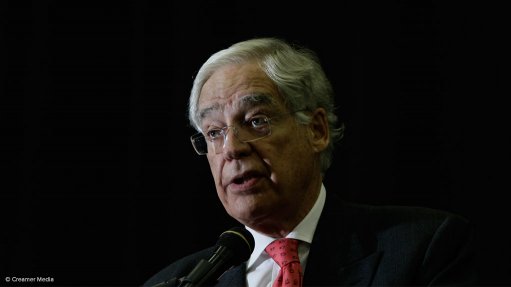
Brazilian Ambassador Carneiro De Mondonça
Photo by: Duane Daws
Emerging economies did have the ability to overcome the current difficult economic conditions and slow growth forecast, Brazilian Ambassador Carneiro De Mondonça said on Thursday.
Speaking at the South African Chamber of Commerce and Industry (Sacci) 2014 Convention, he pointed out that the International Monetary Fund had revised the 2014 economic growth forecast for emerging economies to 4.4%, lower than the previous forecast of 4.6%.
The forecast for developed economies remained at 1.8%.
“Although emerging economies still grow substantially more than developed economies, these revised statistics are a tragedy for countries that have a large young population and that need to create jobs to foster social inclusion, ” he stated.
De Mondonça stressed that Brazil believed emerging economies could overcome these challenges, as they had flexible exchange rates, considerably large international reserves, prudent debt levels and sound financial systems, all of which helped to mitigate the effects of external shocks.
However, as mentioned by Finance Minister Nhlanhla Nene in his Medium-Term Budget Policy Statement on Wednesday, this did not mean that developing countries could ignore the need for prudent financial mechanisms and large-scale structural reform, he said.
De Mondonça added that emerging economies also needed major structural investment in infrastructure bottlenecks, stating that current investment levels were insufficient.
It has been estimated that developing economies would have to invest about $2-trillion a year in infrastructure development over the next ten years; however, only about half of this amount was currently being invested, he pointed out.
“Medium and long-term investment is crucial to reverse the [current] sluggish economic growth of emerging economies,” said De Mondonça.
Also speaking at the convention, Industrial Development Corporation strategic research and information head George Meyer stated that, with regard to the South African economy, the continuous upgrading and expansion of infrastructure was one of the crucial aspects that had to be dealt with to put the country on a sustainable path, as infrastructure bottlenecks continued to curtail economic activity.
He noted that the local economy was negatively impacted by external factors, such as lower demand from the eurozone and China, as well as internal factors, such as the mining and manufacturing strikes that took place this year.
Further, declines in household expenditure, which made up 60% of the country’s gross domestic product, also put further strain on the economy.
Meyer added that other aspects that had to be considered as part of measures to address the challenges the country faced, included education and skills development, and restoring business and consumer confidence.